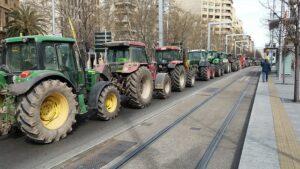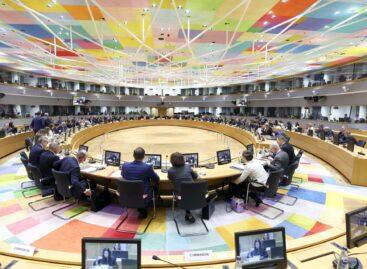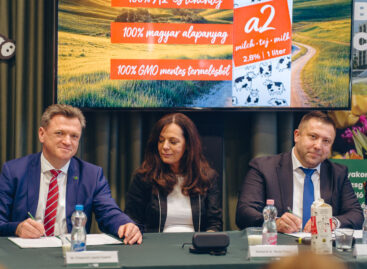Balázs Győrffy: the V4 agricultural organizations are holding a joint farmer demonstration
The agrarian chambers of the Visegrad countries are organizing a joint demonstration together with the representatives of Latvia and Lithuania on February 22, drawing the public’s attention to the fact that the grain and food coming from Ukraine is ruining European farmers – Balázs Győrffy, president of the National Chamber of Agrarian Economy (NAK), spoke about this in the M1 current channel on Monday.

(Photo: Pixabay)
He said that in recent years, the European Agricultural Policy (CAP) has turned into a dead end, livestock keepers and agricultural producers have been branded as climate killers and this has been confirmed by legislation. Speaking about the European Green Deal, he explained: it is an unprofessional and unfounded dictate. After the farmers’ protests of the past period, the decision-makers are starting to back away from this, presumably because of the upcoming EP elections. Added to this is the unrestricted import of grain and food from Ukraine to the EU – poultry meat, eggs, honey – which creates an unequal situation and endangers European farmers and consumers. Ukrainian farmers enjoy a competitive advantage, as they do not have to meet the strict food safety standards that European farmers do, and economy of scale factors are also in their favor, he pointed out. In Kossuth radio’s Monday program “Good morning, Hungary”, Balázs Győrffy stated that the entire European economic society is boiling over, that patience has run out. “We see that the elite in Brussels speak from above on their opinions and problems,” he said. He added: one of the goals of the demonstrations is to draw society’s attention and disperse the criticism of the producers. Protecting our waters and our land is a common goal, and animal welfare is also in the economic interest of producers – he emphasized.
The program said: Ukraine’s Black Sea grain exports have reached pre-war levels, yet the EU maintains the solidarity corridor, which was created to ensure grain supplies to developing countries.
Balázs Győrffy explained in this context: the reason for this is that Ukraine has been pushed out of the European markets and now they are trying to get it back. He pointed out: nine of the ten largest Ukrainian agricultural companies are large companies registered in Western Europe and the United States, it is in their interest to gain a market in Europe, but European farmers pay the price. The National Association of Hungarian Farmers’ Unions and Farmers’ Cooperatives (NAK) has started a tour of the country, they will present information related to rural development resources and provide information on the expected development of the EU’s agricultural policy at around 70 forums, he announced. He explained: the farming community receives all the support from the Hungarian government. There is an enormous amount of resources available for rural development programs; out of every HUF 100, 80 HUF are domestic sources, which is the maximum value that can be insured. One of the questions of the EP elections is that Hungary should be represented in Brussels by those who understand the functioning of agriculture, or who see it as an enemy to be defeated – said Balázs Győrffy.
MTI
Related news
Not a turnaround, but consolidation: an agricultural outlook for 2026
🎧 Hallgasd a cikket: Lejátszás Szünet Folytatás Leállítás Nyelv: Auto…
Read more >Related news
Tourism Business Index: improving sentiment, but the sector remains in the red
🎧 Hallgasd a cikket: Lejátszás Szünet Folytatás Leállítás Nyelv: Auto…
Read more >Lamb Days – Gastronomic Adventure is coming again on March 28–29!
🎧 Hallgasd a cikket: Lejátszás Szünet Folytatás Leállítás Nyelv: Auto…
Read more >








